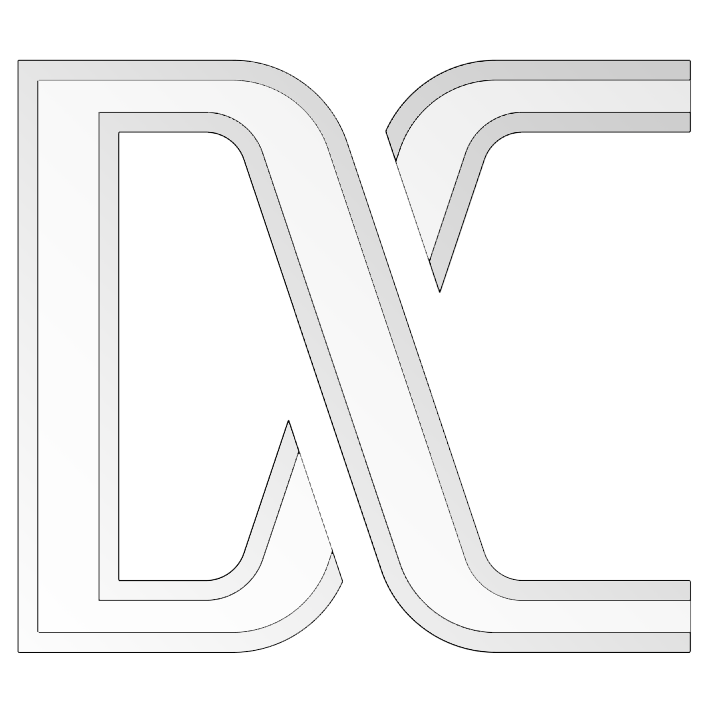
DC I/O 2025 Conference
8 - 9 November | Virtual
About | Committee | Submissions | Programme
Calling all professionals and academics in the fields of computational design, artificial creativity, computer graphics, and interactive techniques, computer-supported collaborative design, urban computing, architecture, engineering, construction, manufacturing, hardware, software, visualization, games, visual effects, virtual and extended realities, and high-performance computing.
We invite you to submit your best works and innovations at the DC I/O Conference on computational design & algorithmic methodologies applied to design. We welcome papers, posters and presentation submissions and look forward to seeing you online.
Conference Sessions
The DC I/O conference is organized into four sessions. At the core of the conference is the theme of Algorithms. This is further studied from a contextual perspective as activities generating Cultures of design and, from the natural sciences perspective, as the activities encoding Cognitions of computational design. The Applications session presents an opportunity to explore new processes and managerial models in industrial case studies.
Research Topics
DC I/O develops an ontology on all computational design. Some of the topics of the conference are listed below. We are constantly updating the conference DC I/O topics on the DCWIKI. We accept peer-reviewed submissions on the following topics.
Computational Design
Artificial Architecture; Artificial Intelligence in Design; Assisted Design Decision Making; Augmentation; Automated Design Systems; Bio-Integrated Design; Biomimetics; Building Information Modelling (BIM); Calculation and Design Analysis; Change Management in Design; Computational Analogy; Computational and Parametric Geometry; Computational Creativity; Computational Fluid Dynamics; Computer Supported Collaborative Design (CSCD, CSCW-D); Computer-Aided Design (CAD); Data Visualisation and Analysis for design; Design Cognition; Design For Manufacturing (DFM), Robotics and Automation; Design Knowledge Capture; Design Support Systems; Digital Fabrication; Digital Fabrication; Digital morphogenesis; Documentation Automation; Environments & Ecosystems; Expert and Knowledge-based Systems; Interaction Design; Modelling; Natural navigation; Optimisation; Responsive computer-aided design; Simulation; Topology; Techtonics; Visual and Spatial Modelling; Visualisation & Communication.
Emerging Technologies
3D Sensing Cameras; 5G; Adaptive ML, DigitalOps AI PaaS, Biochips; AI-driven development; AR Cloud; Augmented analytics; Augmented Intelligence; Autonomous Driving Level 5; Autonomous Things; Biotech; Blockchain; Decentralised Autonomous Organisations; Decentralised Web; Digital ethics and privacy; Digital twins; Edge Analytics; Edge Applications; Emotion AI; Explainable AI; Flying Autonomous Vehicles; Generative Adversarial Networks; Graph Analytics; Immersive technologies; Immersive Workspaces; Light Cargo Delivery Drones; Low Earth Orbit Satellite Systems; Nanoscale 3D Printing; Personification; Quantum computing; Smart spaces; Synthetic Data, Knowledge Graphs; Transfer Learning.
Global Challenges
Global heating; Financial sustainability & responsibility; Food security; Future healthcare; Future of the internet; Future of work/unemployment; Gender equality; Global trade; Green economy; Inclusive growth; International monetary fund; Long-term investment; Recessions; Regulatory frameworks; Sustainable growth; Trust.
Guidelines
Authors are invited to contribute to the DC I/O Conference by submitting their research in one of the recognised formats. Submissions must adhere to the official template and clearly demonstrate the advancement of computational methods through well-defined problem statements, rigorous methodologies, and testable evidence. All submissions require both a written Abstract and a set of presentation slides, with the option to also provide a Full Paper for more comprehensive contributions.
Abstract Submission
An Abstract of approximately 500–1000 words (up to a maximum of four pages including references) may be submitted in accordance with the official DOCX template. The Abstract must include a precise and informative title, full author details, a principal image not exceeding one-quarter of the first page, relevant keywords, and references in Harvard style. It should clearly present the problem statement, underlying rationale, applied methodology, results or preliminary findings, and the contribution to the field. This submission type is intended for authors wishing to present their research in summary form without preparing a full paper. A PowerPoint Slides presentation is required to accompany all Abstract submissions.
Full Paper Submission
Full Paper submissions to DC I/O must follow the official Design Computation Conference (DC/I-O) Paper Template and are structured in two mandatory parts.
Part 1: Proposition
This section contains the literary and conceptual exposition of the research. It must include the Abstract, Keywords, Introduction, detailed methodology, results, analysis, and conclusions. Authors should present the theoretical rationale, computational approach, and contribution to the field in a clear academic style. Standard paper components such as figures, tables, equations, and references must be formatted strictly according to the template. Sub-titles are not indexed in Xplore, so section headings must follow the specified styles. The Proposition functions as the narrative and argumentative component of the paper, establishing the context, problem definition, and intellectual contribution.
Part 2: Implementation [I/O Section]
In addition to the Proposition, all Full Papers must include an Implementation section that documents the computational realisation of the research. This is presented in the form of algorithms, pseudocode, or annotated source code, accompanied by explanatory commentary and sample outputs (figures or diagrams). The Implementation is non-optional and is intended to consolidate the research contribution into a precise, reproducible, and testable form. In effect, Part 1 describes what has been proposed and why, while Part 2 specifies how the proposition can be executed in practice.
Together, these two parts ensure that each Full Paper offers both a scholarly discussion of computational design ideas and a concrete implementation that can be examined, tested, or extended by others. As with Abstract-only submissions, a PowerPoint presentation must accompany the Abstract and Full Paper.
Slides Submission
For both Abstract-only and Full Paper submissions, the submission of a corresponding set of presentation slides in Microsoft PowerPoint format is compulsory. The slides must reflect the content of the Abstract or Paper and should be structured for oral presentation. They are expected to communicate the key aspects of the research, including the problem addressed, rationale, methodology, findings, and overall contribution.
Updates and Resubmissions
Submissions are required in two components: the Abstract must be submitted as a Microsoft Word document using the prescribed template, and the corresponding presentation must be provided as a Microsoft PowerPoint file. Should revisions or updates be necessary, authors are requested to complete a new submission form and attach the updated documents. The system will automatically aggregate multiple versions under the author’s metadata, ensuring consistency across submissions. Authors are strongly encouraged to consult the template for full guidance on formatting and submission requirements.
DC I/O CONFERENCE DEADLINES & SUBMISSION FORM
DC I/O CONFERENCE DEADLINES & SUBMISSION FORM
Key Deadlines
Abstracts & Presentations (500-1000 words)
All abstract submissions will be followed by Full Paper, Poster and Slide Presentation submissions.
Presentation Abstract Opens: 30th September 2025
Presentation First Draft Submission: 10th October 2025
Acceptance Confirmation: 15th October 2025
Final Presentation Submission: 20th October 2025
Template
All Abstracts and Full Papers must be prepared using the official .docx template. In addition, all presentations must use the official PowerPoint slide template. Both templates include formatting rules and guidance—please follow these carefully when preparing your submission.
Submission
Please submit your work using the official submission form. Use the form to upload all required documents, including the Abstract or Full Paper (in the prescribed template) and the accompanying presentation slides. The maximum file size for each upload is 20 MB.
Help & Guidance
You will find all guidance on how to develop your presentation, poster or full conference paper in the Design Computation Wiki (DCWIKI). Please refer to the following page [DC I/O Conference].
